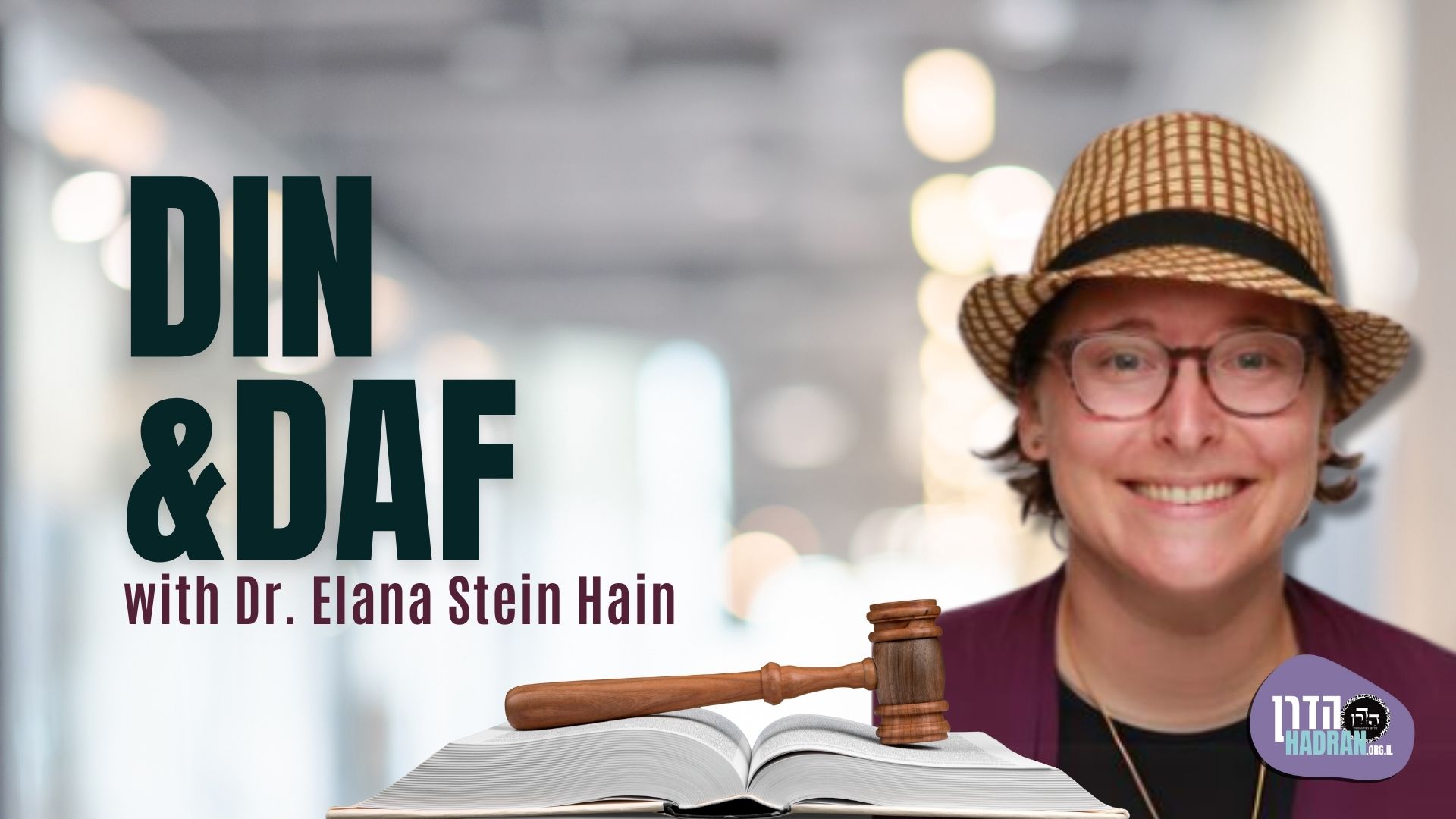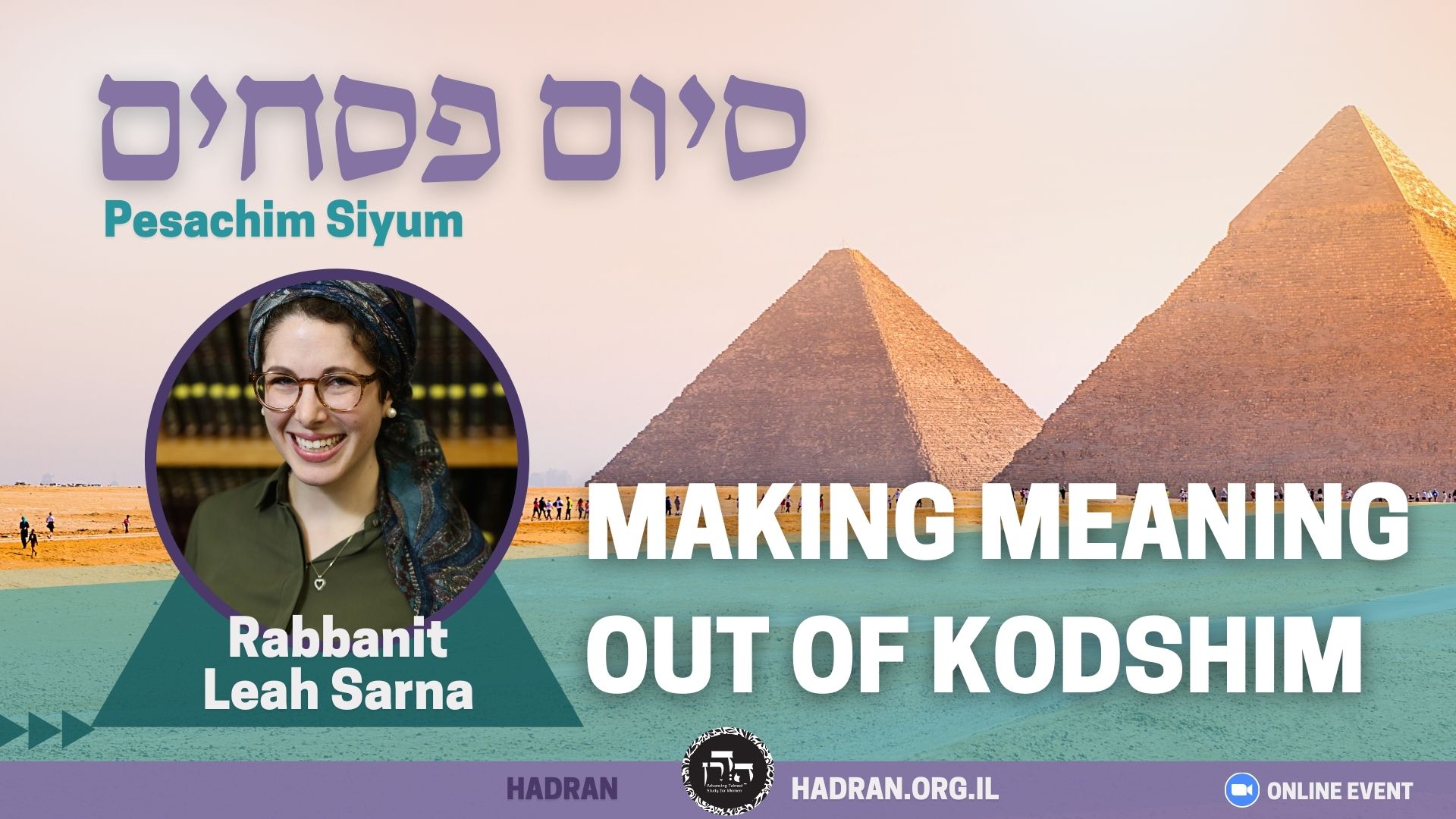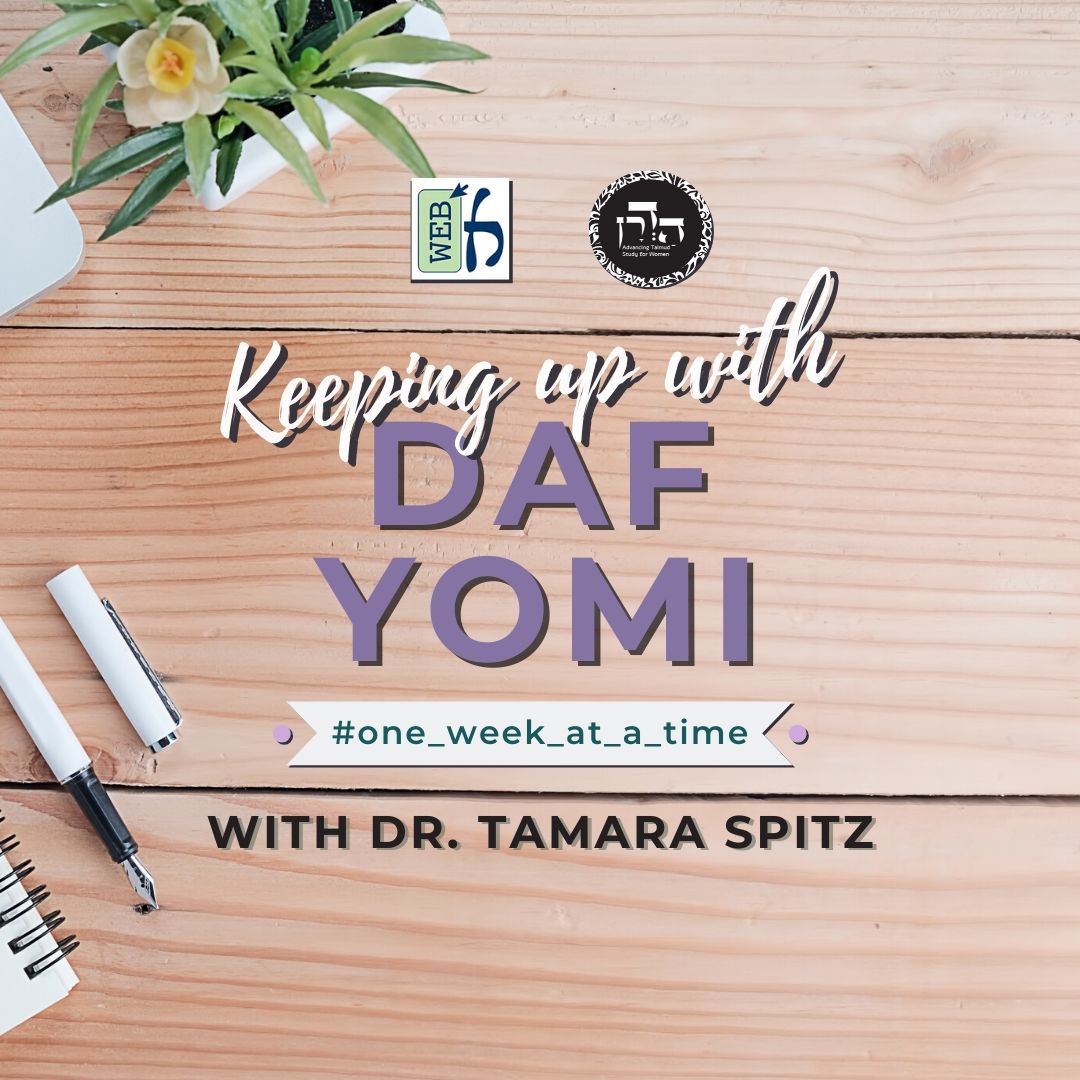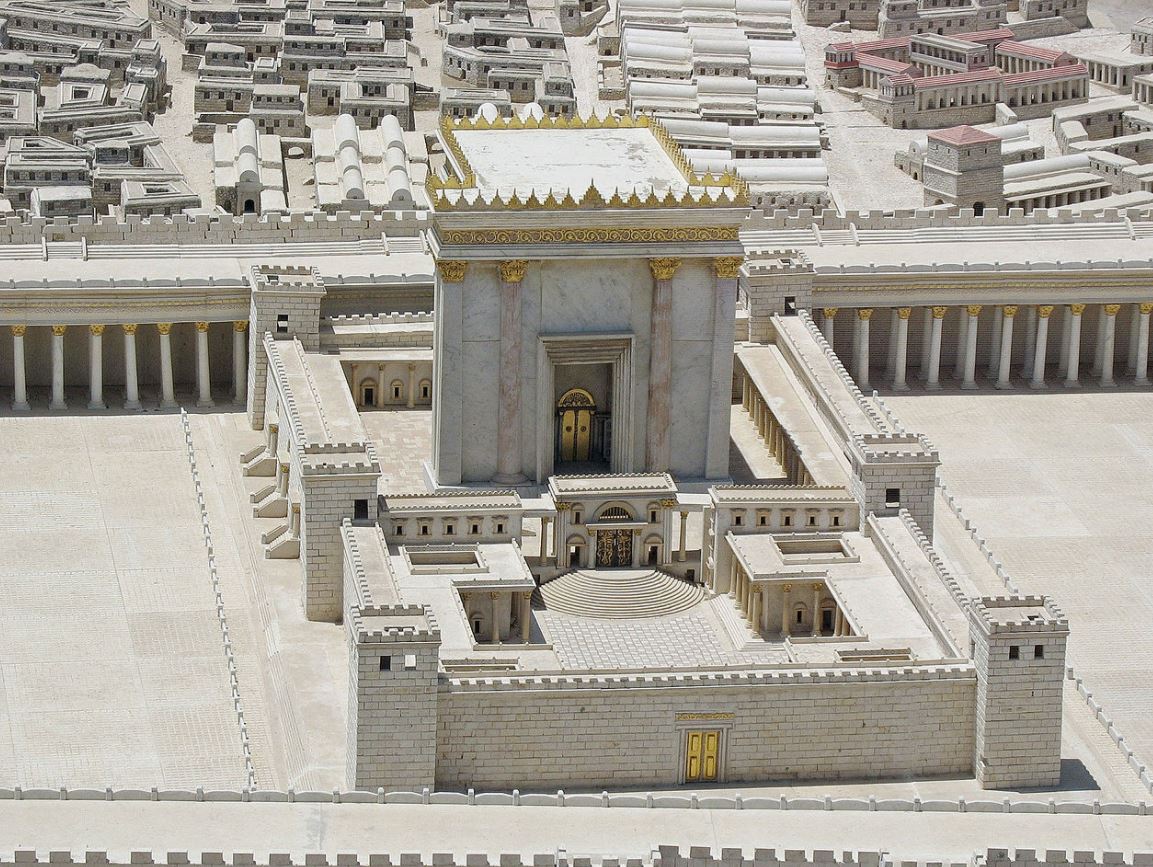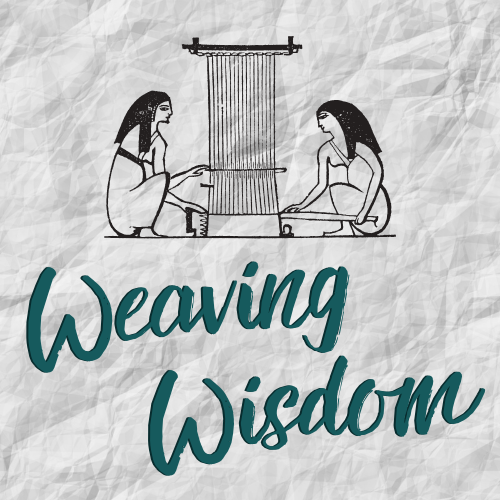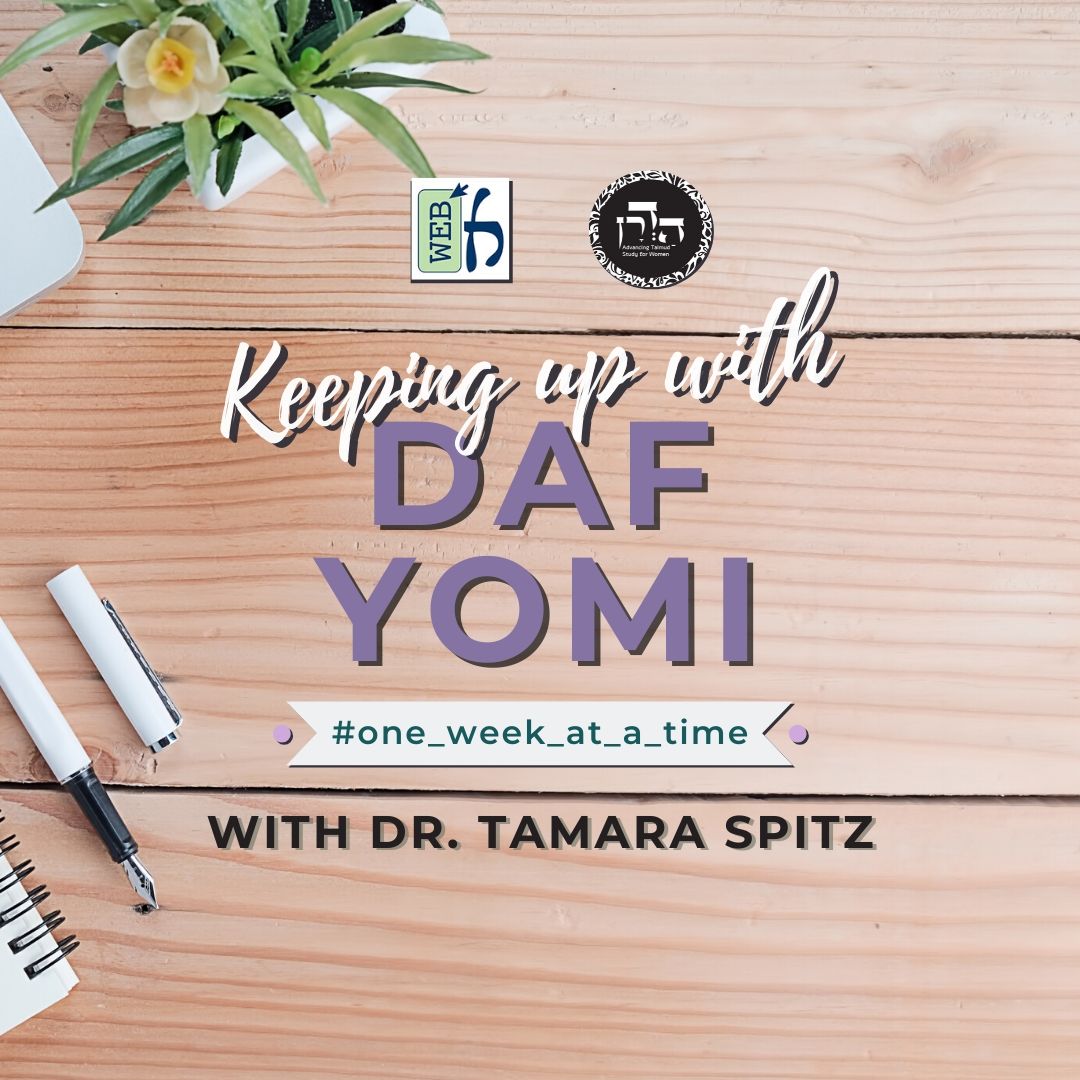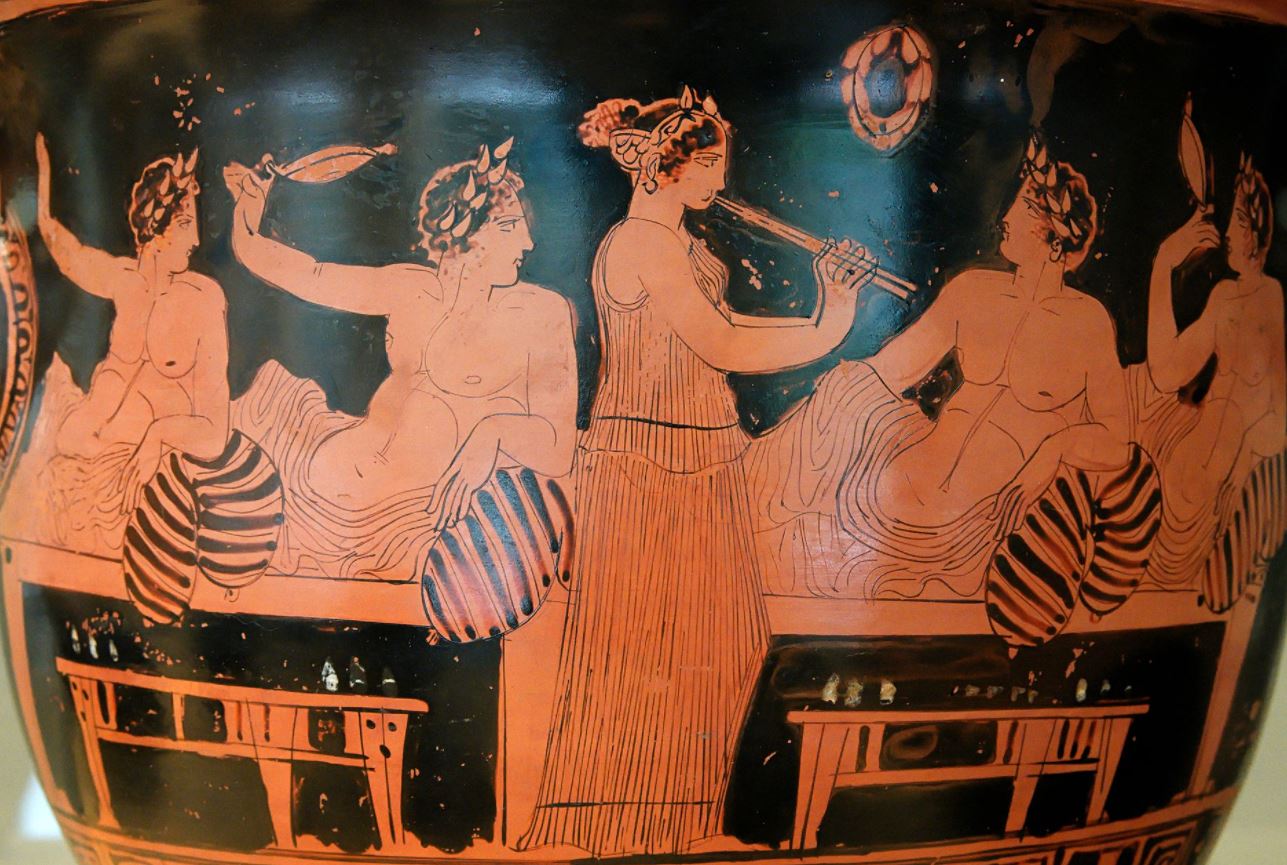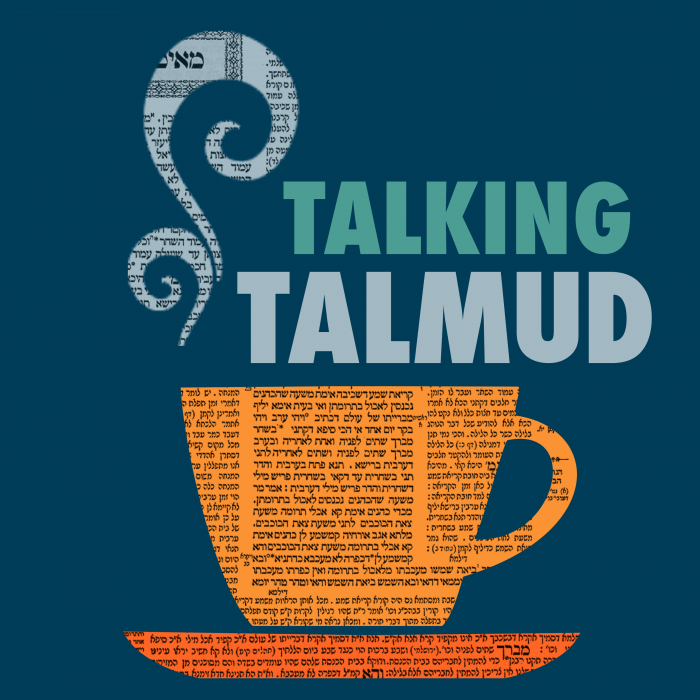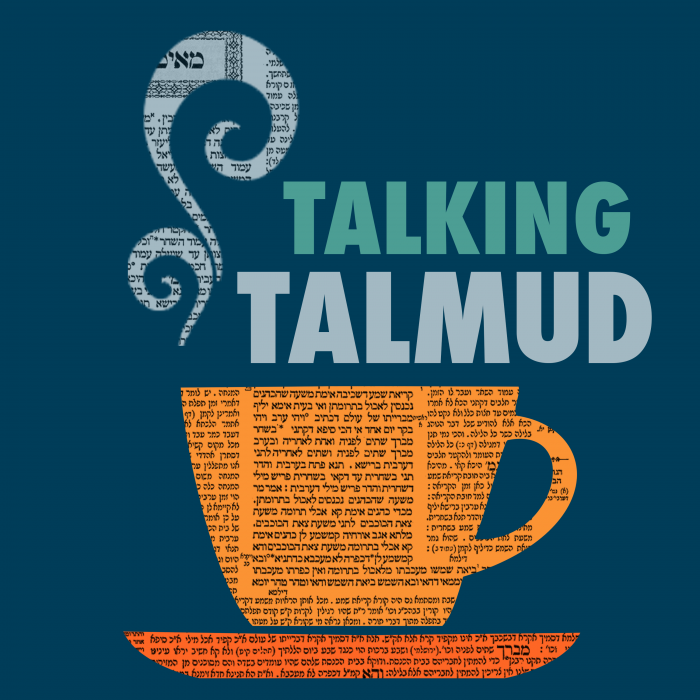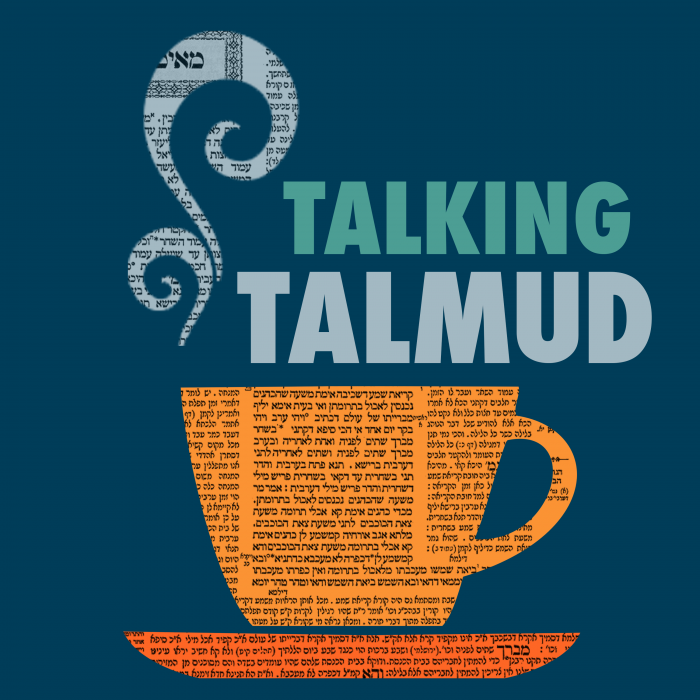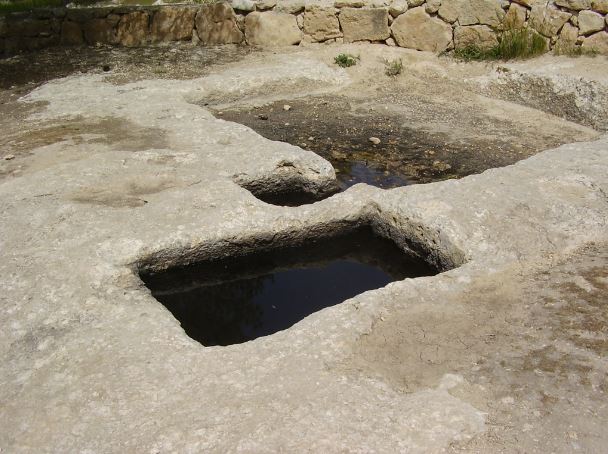Pesachim 31
וְאָתֵי מַלְוֶה וּפָרֵיק. דִּתְנַן: מוֹסִיף עוֹד דִּינָר וּפוֹדֶה אֶת הַנְּכָסִים הָאֵלּוּ. כִּי פְּלִיגִי דְּזַבֵּין מַלְוֶה, וְקַדֵּישׁ מַלְוֶה.
Or if the debtor consecrated the property, the creditor can come and redeem it through a symbolic payment to the Temple. As we learned in a mishna: The creditor may add an additional dinar to the amount of the loan and redeem this property. Although strictly speaking he need not redeem it, this payment was instituted so that it would not appear as though property were removed from the consecrated Temple jurisdiction without a payment. When they disagree is in a case when the creditor sold or consecrated the property in the interim between the giving of the collateral and the time the loan was due.
אַבָּיֵי אָמַר, לְמַפְרֵעַ הוּא גּוֹבֶה: כֵּיוָן דִּמְטָא זִמְנֵיהּ וְלָא פַּרְעֵיהּ, אִיגַּלַּאי מִילְּתָא לְמַפְרֵעַ דְּמֵעִיקָּרָא בִּרְשׁוּתֵיהּ הֲוָה קָאֵי, וְשַׁפִּיר אַקְדֵּישׁ, וְשַׁפִּיר זַבֵּין. וְרָבָא אָמַר, מִכָּאן וּלְהַבָּא הוּא גּוֹבֶה: כֵּיוָן דְּאִילּוּ הֲווֹ לֵיהּ זוּזֵי, הֲוָה מְסַלֵּיק לְהוּ בְּזוּזֵי — אִישְׁתְּכַח דְּהַשְׁתָּא קָא קָנֵי.
Abaye said: He retroactively acquires the collateral. Since the time arrived and he did not repay his loan, it has become clear retroactively that it was in the creditor’s jurisdiction at the outset. Therefore, he did well to consecrate or sell it. However, Rava said: He collects it from that point forward, since if the borrower had money he would remove the creditor’s lien with this money and the lender would not acquire the property. It is found that the creditor acquires the property now, at the time when the loan is due, and consequently he did not have the right to consecrate or sell it before this time.
וּמִי אָמַר רָבָא הָכִי? וְהָאָמַר רָמֵי בַּר חָמָא: רְאוּבֵן שֶׁמָּכַר שָׂדֶה לְשִׁמְעוֹן בְּאַחְרָיוּת וּזְקָפָן עָלָיו בְּמִלְוֶה, וּמֵת רְאוּבֵן, וַאֲתָא בַּעַל חוֹב דִּרְאוּבֵן וְטָרֵיף לֵיהּ מִשִּׁמְעוֹן, וַאֲתָא שִׁמְעוֹן וּפַיְּיסֵיהּ בְּזוּזֵי —
Before bringing proofs for either side of this dispute, the Gemara attempts to clarify Rava’s position. Did Rava actually say this? A statement he makes in a different context appears to contradict the one made in his name here. But didn’t Rami bar Ḥama say: Reuven sold a field to Shimon with a guarantee that if the field is repossessed, Reuven will compensate Shimon for his loss. Shimon did not pay for the purchase, and instead set up the value of the field as a loan. In the meantime, Reuven died and a creditor of Reuven’s came to collect for a loan that Reuven had taken before he sold the field, as Reuven had no other land remaining, and he seized the land from Shimon, since it was mortgaged to this loan. And Shimon went and appeased the creditor with money so the creditor would allow him to keep this field.
דִּינָא הוּא דְּאָתוּ בְּנֵי רְאוּבֵן וְאָמְרִי לֵיהּ לְשִׁמְעוֹן: אֲנַן, מִטַּלְטְלֵי שְׁבַק אֲבוּן גַּבָּךְ, וּמִטַּלְטְלֵי דְיַתְמֵי לְבַעַל חוֹב לָא מִשְׁתַּעְבְּדִי.
By right, Reuven’s sons can come and say to Shimon that he must pay them the money that he owes for the field. And they are not required to pay Shimon if he demands compensation for the repossession of his field. They can say that our father left us movable property in your hands, i.e., the money you owe us for the field, and, as a general rule, movable property that has been left to orphans is not mortgaged to a creditor. The orphans can claim that the field belongs to Shimon, and as there is no land left for the orphans, there is no way for Shimon to recover the compensation that he is owed. The money he owes Reuven is considered movable property, and therefore he cannot recover his losses from these funds.
וְאָמַר רָבָא: אִי פִּיקֵּחַ שִׁמְעוֹן — מַגְבֵּי לְהוּ אַרְעָא, וַהֲדַר גָּבֵי לַהּ מִינַּיְיהוּ. דְּאָמַר רַב נַחְמָן: יְתוֹמִים שֶׁגָּבוּ קַרְקַע בְּחוֹבַת אֲבִיהֶם — בַּעַל חוֹב חוֹזֵר וְגוֹבֶה אוֹתָהּ מֵהֶן.
And Rava said with regard to this case: If Shimon is clever he will pay them what he owes with real estate and not with money. Since they now have real estate received from their father’s estate, Shimon can then collect the field from them as compensation for the original field that Reuven sold to Shimon. As Rav Naḥman said: When orphans collect real estate for a debt owed to their father from one person, another creditor can come and seize this land from them in order to repay the father’s debt.
אִי אָמְרַתְּ בִּשְׁלָמָא ״לְמַפְרֵעַ הוּא גּוֹבֶה״, אַמְּטוּ לְהָכִי חוֹזֵר וְגוֹבֶה אוֹתָהּ מֵהֶן — דִּכְמַאן דְּגָבוּ מֵחַיִּים דַּאֲבוּהוֹן דָּמֵי. אֶלָּא אִי אָמְרַתְּ ״מִכָּאן וּלְהַבָּא הוּא גּוֹבֶה״, אַמַּאי חוֹזֵר וְגוֹבֶה אוֹתָהּ מֵהֶן? הָא הָוֵי כְּמַאן דִּזְבֵין יַתְמֵי נִכְסֵי דָּמֵי, וְאִילּוּ קָנֵי יַתְמֵי נִכְסֵי, מִי קָא מִשְׁתַּעְבְּדִי לְבַעַל חוֹב?
The Gemara applies this discussion to our original case. Granted, if you say that a creditor collects retroactively, and the field is considered as though it belonged to the creditor from the time of the loan, due to this reason, he can then collect the money from them, because it is considered as though he collected it during their father’s lifetime. Because the field given by Shimon to repay his debt retroactively belonged to Reuven from the time that Shimon agreed to pay for the field, therefore Shimon can now claim this land from Reuven’s heirs. However, if you say that he collects it from this point forward, why can he then collect this land from them? It is as though the orphans purchased this property. And if orphans buy property, does it become indebted to a creditor of their father? Only property that belonged to the father can be seized in order to pay back his debt, and therefore Rava’s statement in the case appears to contradict his statement with regard to the transfer of ownership of collateral.
שָׁאנֵי הָתָם, דְּאָמַר לְהוּ: כִּי הֵיכִי דְּמִשְׁתַּעְבַּדְנָא לֵיהּ לַאֲבוּכוֹן, מִשְׁתַּעְבַּדְנָא נָמֵי לְבַעַל חוֹב דַּאֲבוּכוֹן — מִדְּרַבִּי נָתָן. דְּתַנְיָא, רַבִּי נָתָן אוֹמֵר: מִנַּיִן לַנּוֹשֶׁה בַּחֲבֵירוֹ מָנֶה וַחֲבֵירוֹ בַּחֲבֵירוֹ, שֶׁמּוֹצִיאִין מִזֶּה וְנוֹתְנִין לָזֶה? תַּלְמוּד לוֹמַר: ״וְנָתַן לַאֲשֶׁר אָשַׁם לוֹ״.
The Gemara resolves this contradiction: It is different there, in this case, as Shimon could have said to Reuven’s children that just as I am indebted to your father, so too, I am indebted to your father’s creditor. And this principle can be learned from the statement of Rabbi Natan that one who lends to one person and borrows from another can be considered as a middleman between his creditor and his borrower. As it was taught in a baraita, Rabbi Natan says: From where is it derived that when one lends one hundred dinar [maneh] to his fellow, and that fellow lends a similar sum to a third fellow, that we take the money from this one, the second debtor, and give it to that one, the first creditor, without going through the middleman, who is both the first debtor and the second creditor? The verse states: “And he shall give it to him whom he has wronged” (Numbers 5:7), which indicates that the loan should be repaid to the creditor to whom the money is ultimately owed. Therefore, payment is made to the original creditor regardless of the issue of retroactive acquisition of the collateral.
תְּנַן: גּוֹי שֶׁהִלְוָה אֶת יִשְׂרָאֵל עַל חֲמֵצוֹ — אַחַר הַפֶּסַח מוּתָּר בַּהֲנָאָה. אִי אָמְרַתְּ בִּשְׁלָמָא ״לְמַפְרֵעַ הוּא גּוֹבֶה״ — אַמְּטוּ לְהָכִי מוּתָּר בַּהֲנָאָה.
The Gemara proceeds to bring proofs for the two sides of the question of retroactive acquisition. We learned in the mishna: If a gentile lent money to a Jew, and the Jew gave him leavened bread as collateral during Passover, and after Passover the gentile attained this leavened bread in lieu of payment, then one is permitted to derive benefit from the leavened bread. The Gemara attempts to clarify this position: Granted, if you say that he retroactively collects this property, and the leavened bread was acquired retroactively by the gentile, it is due to this that one is permitted to derive benefit from it after Passover.
אֶלָּא אִי אָמְרַתְּ ״מִכָּאן וּלְהַבָּא הוּא גּוֹבֶה״, אַמַּאי מוּתָּר בַּהֲנָאָה? בִּרְשׁוּתָא דְיִשְׂרָאֵל הֲוָה קָאֵי! הָכָא בְּמַאי עָסְקִינַן — כְּשֶׁהִרְהִינוֹ אֶצְלוֹ.
But if you say that he collects it from this point forward, then why should one be permitted to derive benefit from this leavened bread? The leavened bread was in the possession of a Jew during Passover, and therefore it should be forbidden. The Gemara answers: With what are we dealing here? With a case where he deposited [hirhin] the leavened bread with the gentile in his home, and since the leavened bread was in the gentile’s possession during Passover, it is considered as if it belonged to the gentile, provided the gentile ultimately retains ownership of the leavened bread when the Jew defaults on the loan.
לֵימָא כְּתַנָּאֵי: יִשְׂרָאֵל שֶׁהִלְוָה לְגוֹי עַל חֲמֵצוֹ — לְאַחַר הַפֶּסַח אֵינוֹ עוֹבֵר. מִשּׁוּם רַבִּי מֵאִיר אָמְרוּ: עוֹבֵר. מַאי לָאו, בְּהָא קָמִיפַּלְגִי: דְּמָר סָבַר לְמַפְרֵעַ הוּא גּוֹבֶה, וּמָר סָבַר מִכָּאן וּלְהַבָּא הוּא גּוֹבֶה?
The Gemara suggests: Let us say that this dispute is parallel to a dispute between tanna’im. As it was taught: If a Jew lends money to a gentile and the gentile gives him leavened bread as collateral, then the Jew does not commit any transgression after Passover. They said in the name of Rabbi Meir that he commits a transgression. What, isn’t it that they disagree about this, that one Sage, Rabbi Meir, holds that the Jew transgresses by owning leavened bread because he retroactively collects the leavened bread and has therefore owned it during Passover, and one Sage, who states that the Jew does not commit a transgression, holds that he collects it from this point forward, and therefore it was not considered to be in his possession during Passover?
וְתִסְבְּרָא? אֵימָא סֵיפָא: אֲבָל גּוֹי שֶׁהִלְוָה לְיִשְׂרָאֵל עַל חֲמֵצוֹ — לְאַחַר הַפֶּסַח דִּבְרֵי הַכֹּל עוֹבֵר. וְהָא אִיפְּכָא מִיבְּעֵי לֵיהּ: לְמַאן דְּאָמַר הָתָם ״אֵינוֹ עוֹבֵר״ — הָכָא עוֹבֵר. לְמַאן דְּאָמַר הָתָם ״עוֹבֵר״ — הָכָא אֵינוֹ עוֹבֵר!
The Gemara rejects this explanation: And how can you understand it that way? Say the latter clause of that baraita: However, if a gentile lends money to a Jew with leavened bread as collateral, then after Passover everyone agrees that he commits a transgression. However, if the preceding explanation is correct, it needed to state the opposite of what it said in the first clause, as the case in the latter clause is the reverse of that in the first clause. Namely, according to the one who said there, in the first clause of the baraita, that he does not commit a transgression, he should say that here, in this case, he does commit a transgression. And according to the one who said there, in the first clause of the baraita, that he does commit a transgression, he should say that here, in the latter clause, he does not commit a transgression. For if the creditor retroactively acquires the collateral, then it is as though it belonged to a gentile during Passover, and therefore the Jew would not have committed a transgression by owning it.
אֶלָּא הָכָא בְּמַאי עָסְקִינַן — כְּגוֹן שֶׁהִרְהִינוֹ אֶצְלוֹ, וְקָמִיפַּלְגִי בִּדְרַבִּי יִצְחָק. דְּאָמַר רַבִּי יִצְחָק: מִנַּיִן לְבַעַל חוֹב שֶׁקּוֹנֶה מַשְׁכּוֹן? שֶׁנֶּאֱמַר: ״וּלְךָ תִּהְיֶה צְדָקָה״. אִם אֵינוֹ קוֹנֶה מַשְׁכּוֹן — צְדָקָה מִנַּיִן? מִכָּאן לְבַעַל חוֹב שֶׁקּוֹנֶה מַשְׁכּוֹן.
Rather, with what are we dealing here? With a situation where he, the gentile debtor, deposited the leavened bread that was serving as collateral with him, the Jewish creditor, and they disagree with regard to the statement of Rabbi Yitzḥak. As Rabbi Yitzḥak said: From where is it derived that a creditor acquires collateral given to him, and is considered its owner so long as the item is in his possession? As it is stated: “You shall surely return the pledge to him when the sun goes down, that he may sleep in his garment, and bless you; and it shall be a righteousness for you before the Lord your God” (Deuteronomy 24:13). Rabbi Yitzḥak infers: If the creditor does not acquire the collateral, then from where is the righteousness involved in returning it? In this case, the creditor would not be giving up anything of his own. From here it is learned that a creditor acquires the collateral.
תַּנָּא קַמָּא סָבַר: הָנֵי מִילֵּי יִשְׂרָאֵל מִיִּשְׂרָאֵל הוּא, דְּקָרֵינָא בֵּיהּ ״וּלְךָ תִּהְיֶה צְדָקָה״, אֲבָל יִשְׂרָאֵל מִגּוֹי — לָא קָנֵי.
The Gemara applies this principle to the explanation of the baraita: The first tanna holds that this applies only when a Jew takes collateral from a fellow Jew, such that I would read and apply the verse “It shall be righteousness for you” and establish that the collateral becomes the property of the lender. However, the verse does not speak about the case where a Jew takes collateral from a gentile, and therefore he does not acquire the collateral; it still belongs to the gentile. Therefore, when a Jew has leavened bread as collateral from a gentile to whom he lent money on Passover, he does not violate any prohibition, as the collateral still belongs to the gentile.
וְרַבִּי מֵאִיר סָבַר, קַל וָחוֹמֶר: יִשְׂרָאֵל מִיִּשְׂרָאֵל קָנֵי, יִשְׂרָאֵל מִגּוֹי לֹא כׇּל שֶׁכֵּן?! אֲבָל גּוֹי שֶׁהִלְוָה אֶת יִשְׂרָאֵל עַל חֲמֵצוֹ — אַחַר הַפֶּסַח דִּבְרֵי הַכֹּל עוֹבֵר. הָתָם וַדַּאי גּוֹי מִיִּשְׂרָאֵל לָא קָנֵי.
However, Rabbi Meir holds that one can derive an a fortiori inference: If a Jew acquires collateral from another Jew, all the more so is it not clear that he will he acquire collateral from a gentile? However, with regard to a gentile who lends money to a Jew with leavened bread as collateral, everyone agrees that he transgresses this prohibition after Passover. There, in that case, the gentile certainly does not acquire collateral from the Jew, and such a transaction could be completed only via the usual modes of acquisition.
תְּנַן: גּוֹי שֶׁהִלְוָה יִשְׂרָאֵל עַל חֲמֵצוֹ — אַחַר הַפֶּסַח מוּתָּר בַּהֲנָאָה. נְהִי נָמֵי דְּהִרְהִינוֹ אֶצְלוֹ, הָא אָמְרַתְּ גּוֹי מִיִּשְׂרָאֵל לָא קָנֵי? לָא קַשְׁיָא הָא — דְּאָמַר לֵיהּ ״מֵעַכְשָׁיו״, הָא — דְּלָא אָמַר לֵיהּ ״מֵעַכְשָׁיו״.
We learned in the mishna: If a gentile lent money to a Jew, and the Jew gave him leavened bread as collateral until after Passover, and after Passover he retains this leavened bread in lieu of payment, then one is permitted to derive benefit from this leavened bread. Even granted that this is referring to a case where he deposited the leavened bread with him, the gentile, didn’t you say that a gentile does not acquire collateral from a Jew, and if this is the case, then why is it permissible to derive benefit from this leavened bread? According to the previously stated principle, this leavened bread remains Jewish property. The Gemara resolves this question: This is not difficult, for this case, where the gentile acquires the leavened bread and therefore it is permitted to derive benefit from it, is when the gentile said to him that if he does not repay his loan, then the collateral will be acquired from now, i.e., from the time of the loan. And that case, where it is forbidden to derive benefit from the leavened bread, is when he did not say that it would be acquired from now by the gentile.
ומְנָא תֵּימְרָא דְּשָׁנֵי לֵיהּ בֵּין הֵיכָא דְּאָמַר ״מֵעַכְשָׁיו״ וּבֵין הֵיכָא דְּלָא אָמַר ״מֵעַכְשָׁיו״, דְּתַנְיָא: גּוֹי שֶׁהִרְהִין פַּת פּוּרְנִי אֵצֶל יִשְׂרָאֵל — אֵינוֹ עוֹבֵר, וְאִם אָמַר לוֹ ״הִגַּעְתִּיךָ״ — עוֹבֵר. מַאי שְׁנָא רֵישָׁא וּמַאי שְׁנָא סֵיפָא? אֶלָּא לָאו, שְׁמַע מִינַּהּ: שָׁאנֵי הֵיכָא דְּאָמַר לֵיהּ ״מֵעַכְשָׁיו״ לְהֵיכָא דְּלָא אָמַר לֵיהּ ״מֵעַכְשָׁיו״. שְׁמַע מִינַּהּ.
From where do you say that he distinguishes between a case where he said that the collateral would be acquired from now and a case where he did not say that it would be acquired from now? As it was taught in a baraita: If a gentile deposited with a Jew bread baked in an oven [purni] as collateral for a loan, then he, the Jew, does not transgress the prohibition it shall not be seen and the prohibition it shall not be found. However, if he said to him: I have made them yours from now if I do not repay my loan, then it is considered as though the bread belonged to the Jew, and he transgresses this prohibition. If one assumes that there is no difference between a case where the debtor says: From now, and a case where he doesn’t say: From now, then what is different in the first clause of the baraita and what is different in the latter clause? Rather, must one not conclude from it that there is a difference between a case where he says to him that he will acquire it from now and a case where he does not say to him that he will acquire it from now? The Gemara concurs: Indeed, conclude from it that this is the case.
תָּנוּ רַבָּנַן: חֲנוּת שֶׁל יִשְׂרָאֵל וּמְלַאי שֶׁל יִשְׂרָאֵל, וּפוֹעֲלֵי גוֹיִם נִכְנָסִין לְשָׁם — חָמֵץ שֶׁנִּמְצָא שָׁם אַחַר הַפֶּסַח אָסוּר בַּהֲנָאָה, וְאֵין צָרִיךְ לוֹמַר בַּאֲכִילָה. חֲנוּת שֶׁל גּוֹי וּמְלַאי שֶׁל גּוֹי וּפוֹעֲלֵי יִשְׂרָאֵל נִכְנָסִין וְיוֹצְאִין לְשָׁם — חָמֵץ שֶׁנִּמְצָא שָׁם אַחַר הַפֶּסַח מוּתָּר בַּאֲכִילָה, וְאֵין צָרִיךְ לוֹמַר בַּהֲנָאָה.
The Sages taught in the Tosefta: With regard to the case of a store owned by a Jew and whose contents belong to the Jew, and gentile workers would enter there periodically, then it is forbidden to derive benefit from the leavened bread that is found there after Passover, and needless to say, it is forbidden to eat this leavened bread, for it is presumed to belong to the Jewish owner. Conversely, if a store is owned by a gentile and its contents belong to the gentile, and Jewish workers enter and exit the store, then it can be presumed that the leavened bread that is found there after Passover belonged to the gentile, and therefore one is permitted to eat it after Passover. And needless to say, it is permitted to derive benefit from this leavened bread.
מַתְנִי׳ חָמֵץ שֶׁנָּפְלָה עָלָיו מַפּוֹלֶת הֲרֵי הוּא כִּמְבוֹעָר. רַבָּן שִׁמְעוֹן בֶּן גַּמְלִיאֵל אוֹמֵר: כׇּל שֶׁאֵין הַכֶּלֶב יָכוֹל לְחַפֵּשׂ אַחֲרָיו.
MISHNA: Leavened bread upon which a rockslide has fallen is considered as though it has been eliminated, and it is not necessary to dig it up in order to burn it. Rabban Shimon ben Gamliel says: Any leavened bread that has been covered to such an extent that a dog cannot search after it is considered to have been eliminated.
גְּמָ׳ אָמַר רַב חִסְדָּא: וְצָרִיךְ שֶׁיְּבַטֵּל בְּלִבּוֹ. תָּנָא: כַּמָּה חֲפִישַׂת הַכֶּלֶב — שְׁלֹשָׁה טְפָחִים.
GEMARA: Rav Ḥisda said: Although it is not necessary to dig up the leavened bread, one is nevertheless required to nullify the leavened bread in his heart lest it become exposed during Passover. Although it may not be visible at the moment, this leavened bread may be uncovered during Passover, and he will transgress a prohibition by its being seen. It was taught in the Tosefta: How much, how deep, will a dog search? It will search three handbreadths deep.
אֲמַר לֵיהּ רַב אַחָא בְּרֵיהּ דְּרַב יוֹסֵף לְרַב אָשֵׁי: הָא דְּאָמַר שְׁמוּאֵל כְּסָפִים אֵין לָהֶם שְׁמִירָה אֶלָּא בַּקַּרְקַע, מִי בָּעֵינַן שְׁלֹשָׁה טְפָחִים אוֹ לָא? אֲמַר לֵיהּ הָכָא מִשּׁוּם רֵיחָא בָּעֵינַן שְׁלֹשָׁה טְפָחִים. הָתָם מִשּׁוּם אִיכַּסּוֹיֵי מֵעֵינָא הוּא, וְלָא בָּעֵי שְׁלֹשָׁה. וְכַמָּה? אָמַר רַפְרָם בַּר פָּפָּא מִסִּיכְרָא: טֶפַח.
Rav Aḥa, son of Rav Yosef, said to Rav Ashi: With regard to that which Shmuel said, that deposited money is considered to be guarded securely by an unpaid bailee, who would nonetheless not be responsible if it were stolen, only when it is buried in the ground, is it necessary to bury this deposited money three handbreadths deep, comparable to leavened bread, or not? He said to him: Here, with regard to Passover, the concern is that the dog will find the food due to its smell, and therefore three handbreadths are required. There, in the case of money, it is necessary to bury the money in order to conceal it from view. Therefore, it is not required to bury it three handbreadths deep, as animals will not search for it and people will not see it. The Gemara asks: If this is the case, then how deep is one required to bury it? Rafram bar Pappa from the city of Sikhra said: One handbreadth is sufficient for the money to be considered concealed.
מַתְנִי׳ הָאוֹכֵל תְּרוּמַת חָמֵץ בַּפֶּסַח, בְּשׁוֹגֵג — מְשַׁלֵּם קֶרֶן וָחוֹמֶשׁ, בְּמֵזִיד — פָּטוּר מִתַּשְׁלוּמִין וּמִדְּמֵי עֵצִים.
MISHNA: If one unwittingly eats teruma of leavened bread on Passover, not realizing that the food was teruma, then he must pay the principal and an additional fifth. This is because one who unwittingly eats teruma must compensate the priest for the value of the teruma and add a fifth of the value, even though the teruma is considered to be valueless on Passover. If he intentionally ate the teruma then he is exempt from payment; as he is liable to receive the severe punishment of karet, he is therefore exempt from the lesser punishment of payment. If he ate impure teruma in this manner then he is not even required to pay its monetary value in wood, for one who derives benefit from impure teruma calculates its value by treating it as though it were fuel for burning. While impure teruma can be used in this manner during the rest of the year, one may not derive any benefit from leavened bread on Passover, and therefore such teruma is worthless.
גְּמָ׳ תְּנַן הָתָם: הָאוֹכֵל תְּרוּמָה בְּשׁוֹגֵג — מְשַׁלֵּם קֶרֶן וָחוֹמֶשׁ, אֶחָד הָאוֹכֵל וְאֶחָד הַשּׁוֹתֶה
GEMARA: We learned in a mishna there, in Terumot: One who unwittingly eats teruma pays the principal and an additional fifth, both one who eats it, and one who drinks it.



